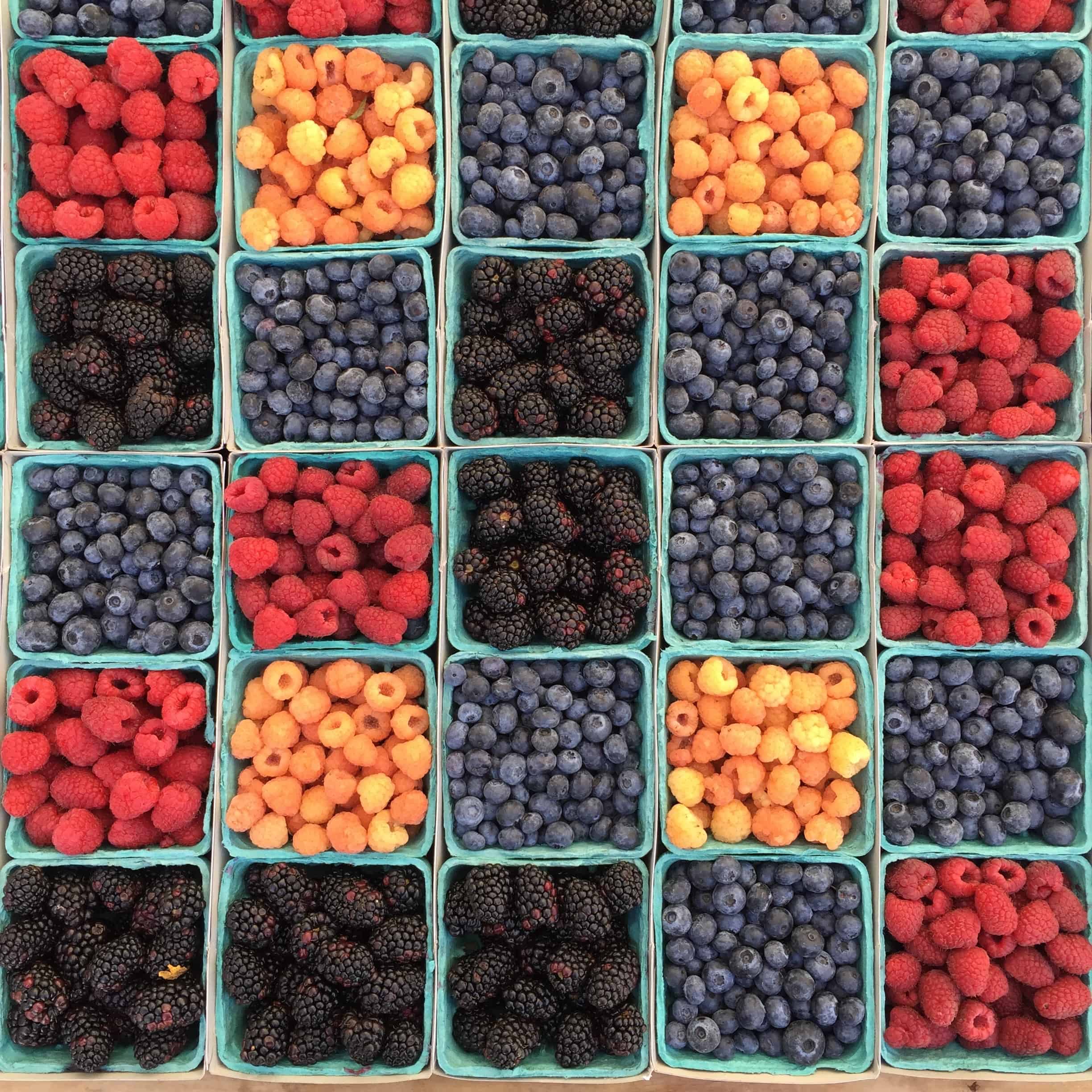Can dogs eat strawberries? Can dogs eat berries ? If you’re outdoors or cooking at home, you might ponder whether your dog can safely consume berries, either unintentionally or as a reward. Dogs, particularly those on a senior diet or who enjoy organic snacks, can benefit from most types of berries. However, there are certain varieties that you should avoid sharing with your dog. Refer to the list below for the prohibited types and seek veterinary assistance promptly if your dog consumes them.
Table of Contents
ToggleCan Dogs Eat Strawberries?
Dogs can safely consume natural strawberries, which contain high levels of antioxidants, fiber, and vitamin C. Additionally, some believe that strawberries can aid in dental whitening for canines. Nonetheless, it is important to limit the consumption of strawberries due to their natural sweetness, as overindulgence may lead to diarrhea or gastrointestinal discomfort. Many pet owners are simply concerned with this one question can dogs eat strawberries ? Wondering whether strawberries are safe for their furry companions, but for those whose dogs have taken a liking to the fruit, it is reassuring to know the potential advantages :
-
- Full of antioxidants
-
- High water content
-
- Source of fibre
-
- Good for teeth
Can dogs eat strawberries ? Yes they can ! Not only can dogs eat strawberries they can eat frozen strawberries and wild strawberries as well.
Can Dogs Eat Frozen Strawberries ? How About Wild Strawberries ?
Frozen strawberries can be a delightful and refreshing snack for your dog. However, it’s important to cut them into small pieces to prevent any potential choking hazards or intestinal blockages. For added precaution, slice them into ¼-inch slices.
Can dogs eat wild strawberries? You may ask. If dogs eat wild strawberries, it is generally not harmful to their health. Nevertheless, it is advisable to feed dogs strawberries that you buy or cultivate on your own, and to ensure they are thoroughly washed before being given to your dog.
How Many Strawberries Can Dogs Eat
After addressing the question ” can dogs eat strawberries ?”, you may be curious about the appropriate quantity of strawberries to feed your dog. The appropriate serving of strawberries for your dog primarily depends on their size. Small or medium-sized dogs should be content with approximately 3 strawberries, while larger dog breeds can handle up to 5 strawberries. Please bear in mind that strawberries should only be considered a treat for your furry friend. Excessive sugar content in strawberries can lead to weight gain and dental problems. It is advisable to offer your dog moderate portions of safe human food.
Can Dogs Eat Blueberries?
Blueberries pose no harm to dogs and can serve as a tasty snack that some canines enjoy. It’s reassuring to know that these berries are also a safe and nutritious option for our furry companions. In fact, blueberries are a low-calorie treat that packs a punch in terms of nutritional value for dogs. Here’s what we’ve uncovered:
-
- Antioxidants to boost immunity
-
- Vitamins C
-
- Fibre
Can Dogs Eat Cranberries?
Cranberries may not be the first choice of your dog’s preference. In fact, even humans struggle to consume cranberries without added sugar. However, it is safe for dogs to consume them as they are not toxic.
Can Dogs Eat Blackberries and Raspberries ?
Dogs can safely consume both raspberries and blackberries which, like their cousin the strawberry, are rich in fiber, vitamins, and antioxidants. Nevertheless, it’s crucial to keep in mind that even though they contain low quantities of sugar and are quite sour, they still have natural xylitol. Therefore, it’s important to monitor your dog’s consumption to prevent excessive intake since even small amounts can accumulate over time.
What Berries to Avoid
Certain types of berries can be harmful to your dog, even if they are safe for humans to consume. It is important to be aware of the potential risks associated with regional berries, such as gooseberries, marionberries, salmonberries, and serviceberries, which may contain toxic elements to dogs.
It is important to note that there is limited information available about some lesser-known species of berries, so it is best to ignore them on the side of caution and avoid feeding them to your pet. Additionally, holly, juniper, nightshade, dogwood, poke, and mistletoe berries, as well as baneberries, can be toxic to dogs and pose a risk if ingested. If your dog has consumed any of these berries, it is recommended that you contact poison control for assistance.
If you think your pet has ingested a toxic berry, call your emergency veterinary hospital and get vet treatment – time is of the essence. You’ll see symptoms such as vomiting, diarrhea, extreme lethargy, tremors, seizures, excessive drooling, or even trouble breathing. Your vet may administer an IV and induce vomiting even if the poisoning is mild. Bring samples of the berry in question, if you can this will help the veterinarian treat your dog.
KEY POINTS

These natural berries are safe for consumption:
- Strawberries
- Blueberries
- Cranberries
These berries are safe for dogs but contain natural xylitol (a toxic substance to dogs) dogs should be monitored if consumed in moderation:
- Blackberries
- Raspberries
All other berries wild or bought at the store should be deemed harmful and avoided until proven safe !

Small or medium-sized dogs should be content with approximately 3 strawberries, while larger dog breeds can handle up to 5 strawberries. Please bear in mind that strawberries should only be considered a treat for your furry friend. Excessive sugar content in strawberries can lead to weight gain and dental problems.
Begin with a small portion. If your canine companion has never consumed blackberries, commence by offering them a maximum of three to observe if any adverse effects occur, such as an unsettled stomach or allergic response.
Yes, blackberries are safe for dogs to eat in moderation. They are low in calories and high in antioxidants, fiber, and vitamins which can offer several health benefits to dogs. However, too many blackberries can cause diarrhea or upset stomach in dogs. Additionally, the seeds of blackberries can pose a choking hazard or cause intestinal blockages. Hence, it is best to feed blackberries to dogs in small quantities as an occasional treat.
These berries contain a small amount of a sugar alcohol called xylitol, which can be dangerous and even deadly for dogs in large amounts. However, the small amount of xylitol in blackberries and other fruits and vegetables is considered safe for dogs to consume. So, if your furry friend has a taste for blackberries, you can feel confident to share a small serving without worrying about xylitol-related health issues. Nonetheless, it’s vital to remember that feeding your dog large amounts can cause digestive problems such as diarrhea and obesity.
As a general rule, it’s best to keep your pets away from holly, juniper, nightshade, dogwood, poke, and mistletoe berries, as well as baneberries, as they can be toxic and cause health problems if consumed. The pits of these berries can also be a choking hazard.
Blueberries improve digestion, reduce inflammation, and are a low-calorie snack option for dogs. Feed in moderation to avoid upset stomach and diarrhea. Wash and remove stems before giving to your dog. Introduce gradually and monitor for reactions.
Raspberries can be a great addition to your dog’s diet in moderation. They carry antioxidants, vitamins C and E, manganese, fiber, and have anti-inflammatory properties, making them ideal for senior dogs with aging joints. But, it’s important to give raspberries to dogs in moderation as excessive amounts could cause gastrointestinal upset, so speak to your veterinarian before adding them to your dog’s diet.
Cranberries have many benefits for dogs. They are low in calories, contain vitamins C, E, and K, have antioxidants and fiber, and can help prevent bacteria from sticking to the walls of the urinary tract. However, cranberries should not replace a balanced diet and feeding too many can cause digestive problems. It’s important to consult your veterinarian before adding any new foods to your dog’s diet, including cranberries.
Yes, dogs can eat frozen berries as treats they stimulate the dog by licking the berry repetitively as it tries to defrost the berry. It’s important to cut them into small pieces to prevent any potential choking hazards or intestinal blockages.
To protect your pets, watch what they eat – especially wild berries. While safe for humans, dogs can be harmed by the toxins and pits in certain berries. Symptoms of poisoning include vomiting, diarrhea, lethargy, and death. If you suspect your dog has consumed something harmful, consult a veterinarian. As a responsible pet owner, avoid potential hazards and keep your dogs safe.

